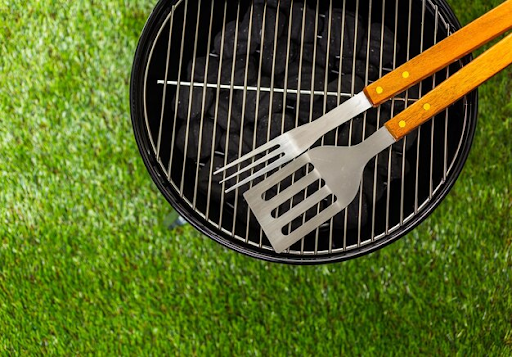Scrape Away Residue: Finding the Best BBQ Grill Scraper for Easy Cleaning

Cleaning your BBQ grill is essential for maintaining its performance and prolonging its lifespan. This comprehensive guide aims to help you navigate through the options available in BBQ grill scrapers, enabling you to choose the most effective tool for effortless cleaning and residue removal.
Importance of BBQ Grill Scrapers in Grill Maintenance
Understand the crucial role of BBQ grill scrapers in maintaining a clean and hygienic cooking surface. Explore how regular use of these tools prevents residue build-up, eliminates grease, and ensures a safe and healthy grilling experience.
- Preventing Flavor Contamination: Residue buildup on the grill grates can transfer unwanted flavors to your food. Scraping off remnants of previous grilling sessions ensures that your dishes maintain their intended taste and aroma.
- Enhancing Grill Hygiene: Regular scraping removes leftover food particles, grease, and carbonized debris that can harbor bacteria and cause cross-contamination. This promotes a healthier grilling environment and reduces the risk of foodborne illnesses.
- Improving Grill Lifespan: Accumulated grease and carbon deposits can corrode and damage grill components over time. Using a scraper to remove these residues helps extend the lifespan of your grill, preventing rust and deterioration.
- Ensuring Even Cooking: Clean grill grates allow for better heat distribution, ensuring that your food cooks evenly. Scraping away residue prevents hotspots that can lead to unevenly cooked meals.
- Fire Safety: Built-up grease and food particles can become a fire hazard. Regularly scraping the grill reduces the risk of flare-ups and uncontrollable fires, promoting a safer grilling experience.
- Ease of Use: A well-maintained grill is easier to operate. Scraping off debris before and after each use reduces the effort required for subsequent cleanings, making the overall maintenance process more manageable.
- Preserving Food Quality: Clean grill grates provide a clean surface for your food, preventing it from sticking and tearing. This helps preserve the quality and appearance of your grilled dishes.
- Cost-Effective Maintenance: Regularly using a BBQ grill scraper can save you money in the long run by preventing the need for costly repairs or premature replacement of grill parts due to neglect or damage caused by accumulated residue.
Types of Grill Scrapers
Grill scrapers come in various types, each with distinct cleaning abilities. Wire brushes excel in robustly tackling tough residues, while wooden scrapers offer a gentler approach, ideal for delicate grill surfaces. Metal scrapers, available in stainless steel or brass, provide durability and strength, catering to different levels of residue removal without damaging the grill surface.
- Wire Brushes:
-
-
- Description: Wire brushes feature metal bristles attached to a handle, effective in removing tough residues and grease from grill grates.
- Advantages: Known for their robust cleaning abilities, wire brushes efficiently tackle stubborn debris on various grill surfaces.
- Considerations: There have been safety concerns about wire bristles breaking off, potentially leading to health hazards if ingested. Regular inspection and replacement are vital for safety.
-
- Wooden Scrapers:
-
-
- Description: Wooden scrapers, crafted from hardwoods, provide a gentle cleaning option, suitable for delicate grill surfaces.
- Advantages: Eco-friendly and less likely to scratch grill surfaces, wooden scrapers mold to fit the grates’ shape over time, offering customized cleaning.
- Considerations: While effective for light cleaning, they might struggle with heavily encrusted residues.
-
- Metal Scrapers:
-
- Description: Metal grill scrapers, often made from stainless steel or brass, offer durability and strength for tackling tough residue.
- Advantages: Stainless steel scrapers resist corrosion, while brass scrapers are non-corrosive and less abrasive, suitable for sensitive surfaces.
- Considerations: Careful use is necessary to avoid scratching or damaging grill grates.
Features to Consider in Grill Scrapers
When choosing a grill scraper, consider features like durable materials such as stainless steel for longevity, a comfortable handle for easy grip and maneuverability, and different scraping edges or designs to suit various grill grate types for effective cleaning.
- Scraping Surface and Blade Strength: Emphasize the importance of a sturdy scraping surface or blade for effective residue removal without damaging the grill surface.
- Handle Design and Grip: Discuss ergonomic handle designs providing comfortable grips and enhanced control during cleaning sessions.
- Material Durability: Highlight the importance of durable materials that withstand high heat and frequent use without deterioration.
- Ease of Cleaning and Maintenance: Consider scrapers with easy-to-clean features, ensuring hassle-free maintenance for prolonged use.
Proper Use and Maintenance of Grill Scrapers
Provide instructions on the correct usage of grill scrapers, emphasizing safety measures, cleaning techniques, and proper storage to prolong their lifespan and ensure efficient cleaning.
Proper use and maintenance of grill scrapers are essential for their effectiveness and longevity:
- Correct Technique: When using a grill scraper, ensure that the grill is still warm but not scorching hot to avoid injury. Hold the scraper at a slight angle and apply firm pressure to remove residue, moving in a back-and-forth motion across the grates. Repeat until the grates are clean.
- Regular Cleaning: After each use, clean the grill scraper thoroughly to remove any leftover debris. Wash it with hot, soapy water and use a brush or sponge to scrub away any stuck-on residue. Rinse it well and dry it completely before storing to prevent rust or corrosion.
- Inspect for Wear and Tear: Regularly inspect the scraper for any signs of damage or wear, such as bent or worn edges. Replace the scraper if the blade is damaged, as this could affect its efficiency and potentially damage the grill grates.
- Proper Storage: Store the grill scraper in a dry place to prevent rusting. If the scraper has a hanging loop or hole, use it to hang the tool rather than letting it lie in a moist or damp environment.
- Maintenance of Handle: If the scraper has a wooden or plastic handle, condition it occasionally with oil or a specialized handle conditioner to maintain its integrity and prevent cracking or drying out.
- Avoiding Abrasive Cleaners: Refrain from using abrasive cleaners or steel wool on the scraper, as these could damage the scraping surface and reduce its effectiveness.
- Adhering to Manufacturer’s Instructions: Follow any specific care instructions provided by the manufacturer to ensure proper maintenance and prolong the lifespan of your grill scraper.
Conclusion
Selecting the right BBQ grill scraper tailored to your grill’s needs and maintenance preferences is crucial for ensuring a clean and well-maintained cooking surface. With the insights and recommendations offered in this guide, you can confidently choose a BBQ grill scraper that facilitates easy cleaning, ensuring hassle-free residue removal and a pristine grill for exceptional grilling experiences.



